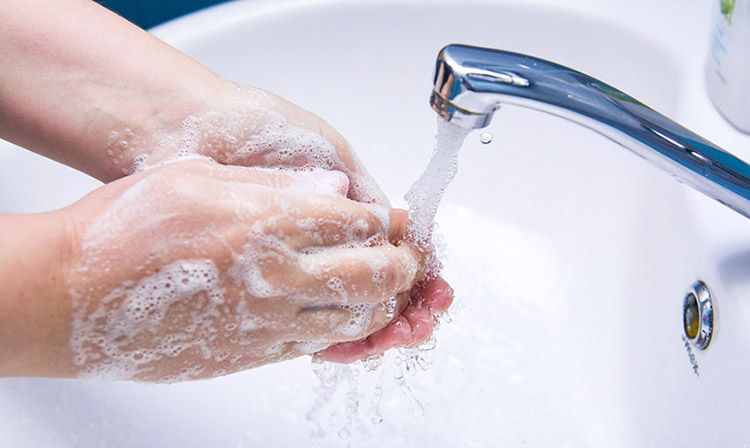

By Diane Vukovic
We’ve all heard it before: you need to wash your hands with soap and water to prevent the spread of germs. So, it would seem logical that washing your hands with antibacterial—germ-killing—soap would do a better job. It turns out that this is not only false, but those antibacterial soaps (and hand sanitizers, sponges and other antibacterial products) could be downright dangerous. Here is why.

1. Antibacterial Soap Contributes to the Rise of Antibiotic-Resistant Bacteria
Maybe you’ve heard now about how the overuse of antibiotics is causing the rise of antibiotic-resistant “superbugs.” Well, the same can be said of antibacterial products like soap.
As epidemiologist Allison Aiello explains to Scientific American, most antibacterial soaps contain the ingredient triclosan. When the bacteria are exposed to triclosan, they can undergo genetic mutations. These same mutations not only protect them from triclosan (or whatever other antibacterial product you are using), but can make them more difficult to kill with antibiotics.
2. Antibacterial Soap May Disrupt Hormones
In animal studies like this one at the Journal of Toxicological Sciences it was found that triclosan altered the hormones in rats, causing an estrogenic effect. The Food and Drug Administration says that animal studies aren’t always indicative of what will happen to humans, but even they recommend reviewing the risks further and say that concerned consumers should use regular soap instead.
3. Antibacterial Soap May Impair Muscle Function
The list of risks associated with triclosan go on! A study, reported in Smithsonian Magazine, found that triclosan “hinders human muscle contractions at the cellular level and inhibits normal muscle functioning in both fish and mice.” The researchers weren’t even exposing cells to super-high dosages during the study. They used levels of triclosan similar to what we experience every day.
4. Antibacterial Soap Increases Risk of Allergies
There are a lot of theories about why allergies are on the rise and one is that the overly-sanitized environment that we live in is harming the development of our immune system. A study published in the Journal of Allergy and Clinical Immunology furthers this theory. It found that the triclosan commonly found in antibacterial products causes mutations, which may lead to food allergies.
5. Antibacterial Soap is Bad for the Environment
When you rinse your hands of antibacterial soap, it doesn’t just disappear down the drain. It gets into our environment and could have disastrous consequences. As Eco Watch reported, the antibacterial chemicals in soap aren’t completely removed by wastewater treatment facilities. The chemicals get transferred into sludge, which is then put on agricultural land and could contaminate surface water.
Why is this so worrisome? Because both triclosan and triclocarban (another common ingredient in antibacterial products) degrade into carcinogens! If these get into the food and water systems, then we could have a massive health problem on our hands. And it seems like they already have gotten into our systems since studies found traces of triclosan in breast milk and also the urine of 75 percent of Americans over the age of five!
6. Antibacterial Soap Isn’t Any More Effective Than Regular Soap
The icing on the cake is that antibacterial soap doesn’t do any better of a job at preventing disease than regular soap.
Several studies, like this one at the Journal of Antimicrobial Chemotherapy and this one at the Oxford Journal of Infectious Disease, have looked into the effectiveness of antibacterial soaps. They’ve found that there was “no significant difference” and antimicrobial soap was “no more effective than plain soap” at preventing infectious illness. This shouldn’t be too surprising considering that most diseases are caused by viruses and not bacteria, so antibacterial soap isn’t effective!
YOU MIGHT ALSO LIKE
San Francisco Bans Styrofoam, Passes Nation’s Toughest Anti-Styrofoam Law
Mother-of-Three Sues Monsanto Claiming Roundup Caused Her Cancer
4 Ways to Get Rid of Seasonal Allergies
Lawsuit Filed Against 3M for Dumping Toxic Chemicals Into the Tennessee River

 233k
233k  41k
41k  Subscribe
Subscribe 